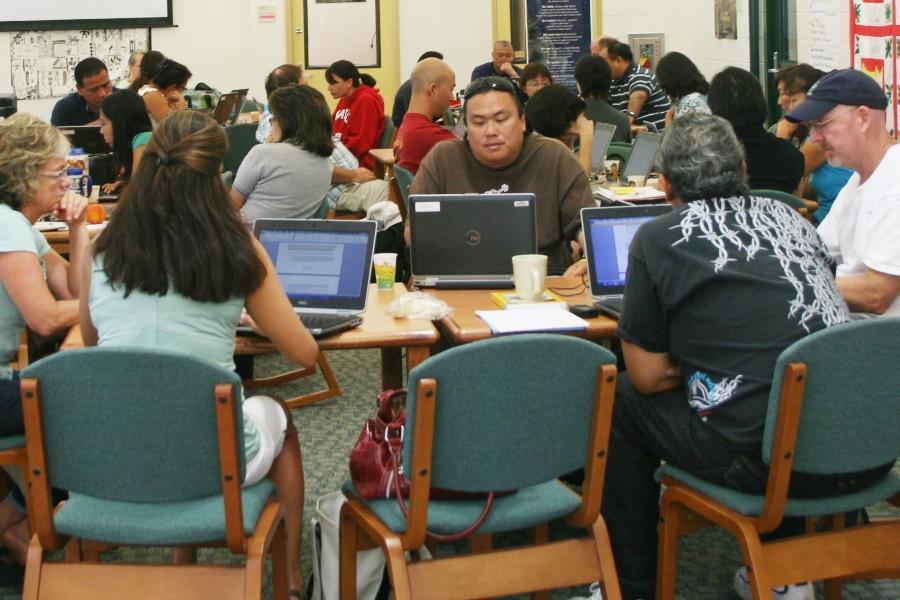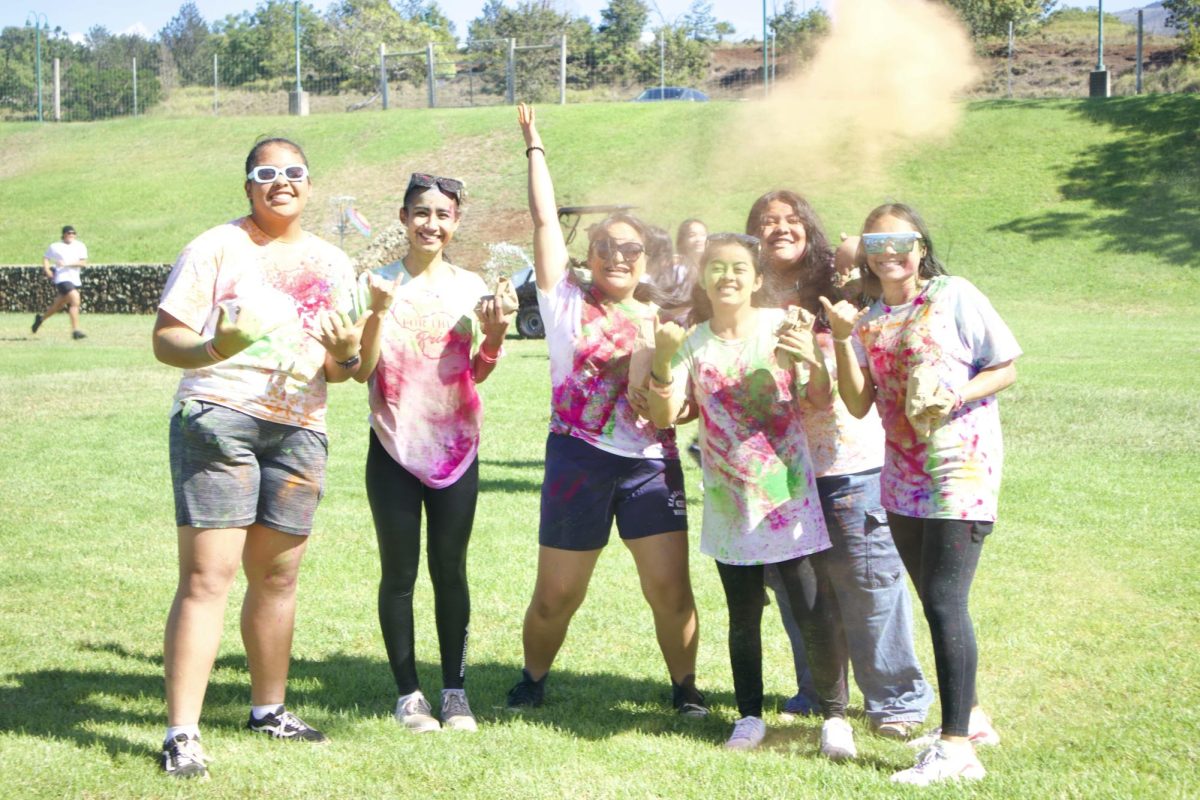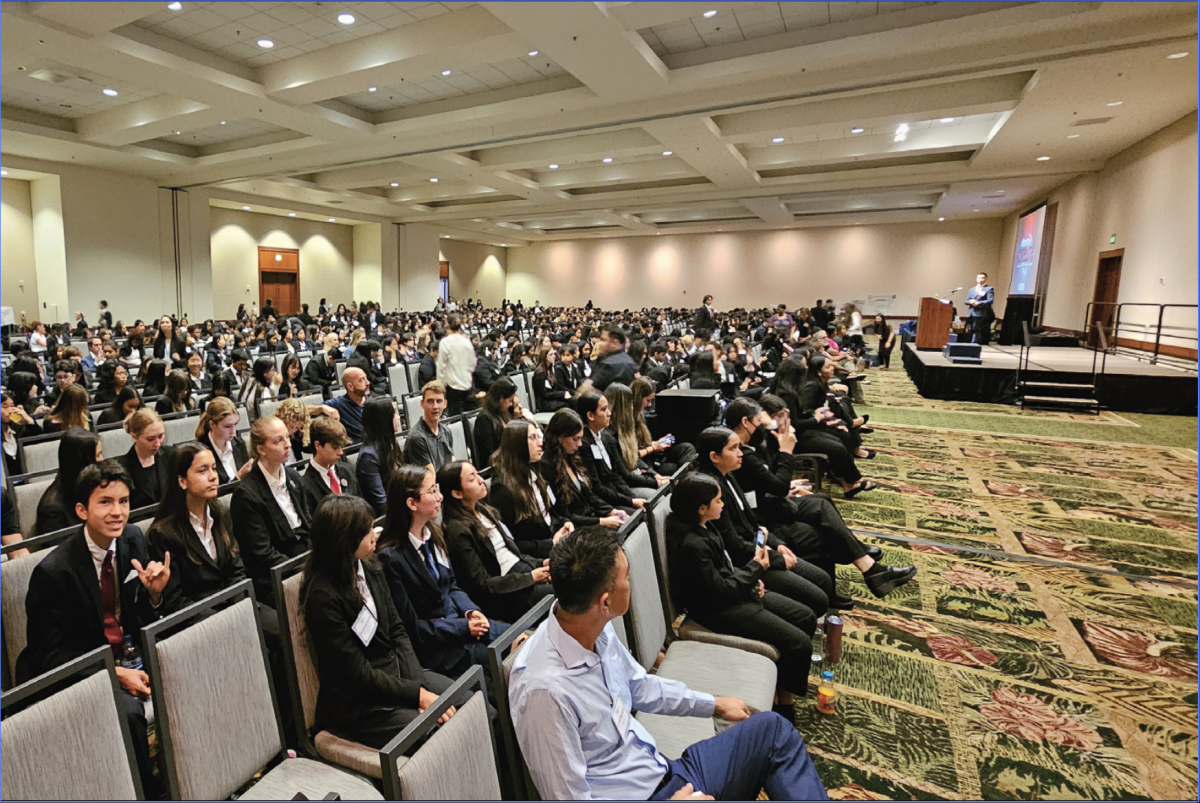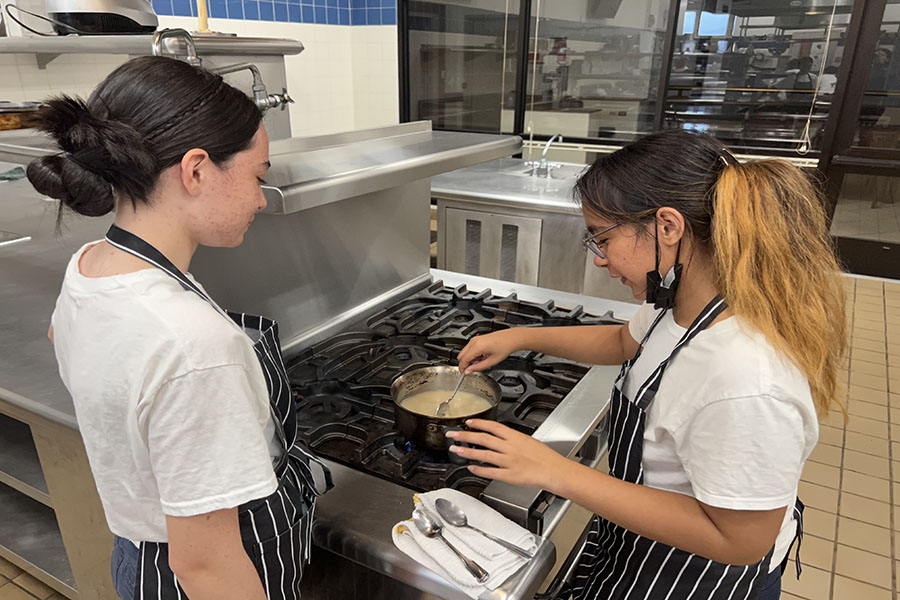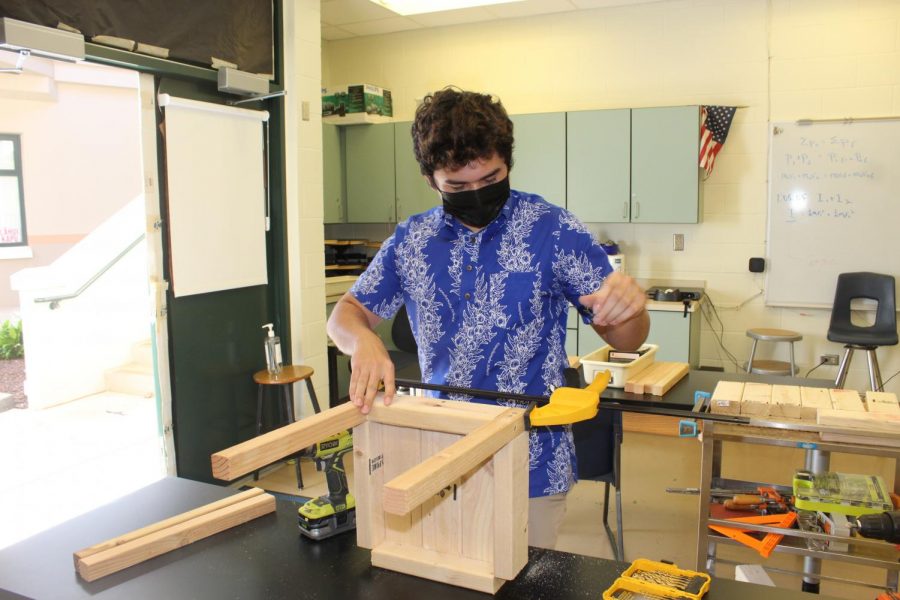This article originally ran in our 9/23/11 print edition. It is being re-run here with minor revisions in formatting.
“It’s called accreditation and it means getting accredited,” Mr. Hal Schmid, co-chairman of the 2012 accreditation process said.
Accreditation is a process of certification of competency, authority, and credibility.
Kamehameha Maui was first accredited in 2006. The committee came back for a mid-point checkup during the third year, but every six years, a school must be re-accredited.
“It’s a way for us to do self-study about our school and our programs, to see what our strengths and weaknesses are and an opportunity to share with the Western Association of Schools and Colleges committee,” Academies Principal Ms. Jay-R Kaawa said.
The process of becoming a re-accredited high school started in August 2010. It includes presenting a report that shows what the school is doing for their students. The report will be reviewed by the WASC committee March 4, 2012.
Biology teacher Mr. Kyle Fujii is a co-chairman with Ms. Lisa Correa, career counselor, and Mr. Schmid.
“We’re responsible for explaining what the high school does to prepare students for college. We have to explain what students do in the classroom, how the school is organized, and the roles of the counselors, the operations department, the athletics department, administration, and teachers. We have to explain how the students learn,” Mr. Fujii said.
Students are able to participate in the accreditation process by meeting with the accreditation committee and evaluating lessons.
“Students can be questioned at any time, and they need to know the mission statement, the vision, and the expected student learning outcomes. WASC will walk through classes and can decide to ask a question at any time, whether it’s in class or walking across the quad,” said Mrs. Ramona Ho, the high school librarian. She has been through five accreditations at different schools where she’s worked.
The accreditation process is like an extensive research paper on the school. The faculty has to answer questions within the report and provide evidence to verify and prove their responses. Evidence can be anything from art pieces to student tests.
“When teachers are gathering evidence they are giving examples of what they teach, and how they teach it. They are not supposed to just show the top students, but a range of student work. The committee wants to know if students are getting the help they need,” Mr. Schmid said.
The accreditation process is a school-wide effort. In the elementary division, the committee is being headed up by elementary teachers Mrs. Annabelle Saiki and Mr. Edwin Otani.
“We are currently trying to find our revisions and edits for the elementary sessions. We are focusing on what we like to call CIA: curriculum, instruction and assessments,”Mr. Otani said.
“We are providing the information for the criteria and pulling the staff together to make sure that the questions that have to be answered are answered honestly and accurately,” Mr. Otani said.
Everyone is working together to get Kamehameha Maui accredited for its second time. Faculty and staff are broken up into committees for each section of the report. Those committees are: School Philosophy and Purpose, the Governing Body, Finances, Development/ Fundraising, Administration, Faculty, and Staff, Students, Community of School, Program, School Library/ Resource Center, School Plant, and Health and Safety.
Teachers are compiling reports to present to the committee chairs. Then, the chairs work together to check all the paperwork and evidence.
On Sept. 27, all teachers have to submit their reports to Mr. Schmid and Ms. Linda Shibano, K-12 Assessment Coordinator and Analyst. On Oct. 7, the entire report will be sent for layout to Kamehameha Schools’ communication department on O’ahu.
Once the report has been printed and published, it is sent to the WASC committee.
The committee members will read the report, then come to the school to look at the evidence and observe the school March 4-7.
On March 7, KSM will find out if they have received their 2012-2018 re-accreditation.
“I’m confident we’ll receive another 6-year accreditation,” Ms. Kaawa said.

